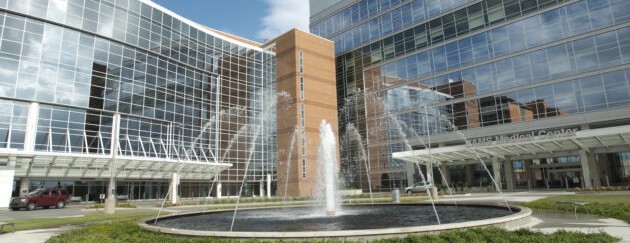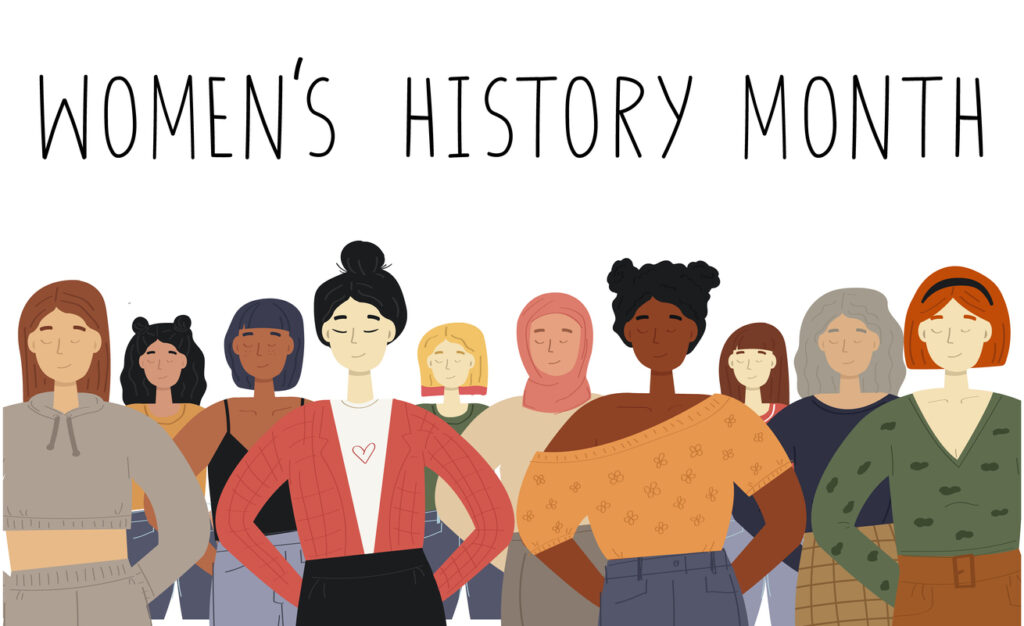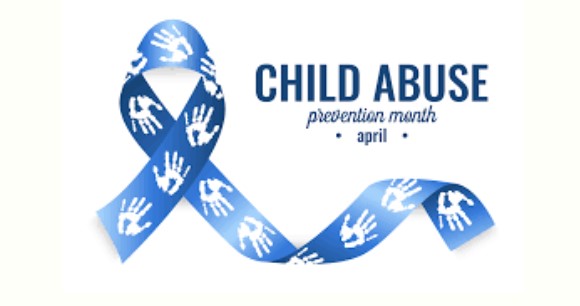Arkansas Commission on Child Abuse, Rape, and Domestic Violence Quarterly Newsletter

The Director’s Desk
Laura Robertson
As we approach April and Child Abuse Prevention Month, I am pleased to announce that the Commission is partnering with thirteen agencies this year through our Child Abuse & Neglect Prevention Grant. We awarded fourteen grants to thirteen agencies for primary and secondary prevention programs. That focus allows us to encompass agencies across all three disciplines: child welfare, sexual assault prevention, and domestic violence prevention.
We are honored to partner with these agencies and organizations as they do the hard work of serving their communities through programs and services to aid in preventing child abuse. These programs look different, but all have the same purpose…to prevent child abuse and neglect from ever happening. Through legal representation in family law cases to programs that educate and protect children and teens from bullying and abuse, the funded programs make a difference in communities across Arkansas. Below is a list of the agencies and organizations awarded grants. We look forward to sharing more about these programs and the dedicated people involved in making them successful over the next year.
Speaking of dedicated people, over the last few months, I have been able to travel around the state, visiting many of our domestic violence shelters and a few sexual assault crisis centers. It has been an amazing learning and eye-opening experience. The services and care provided to victims and survivors around Arkansas is awe-inspiring. Directors and staff juggle many jobs to ensure abuse victims are safe and receive the support and care they need. And often on a very tight budget, which seems to get tighter yearly. I cannot express my gratitude enough for those that serve on the front lines, from Magnolia to Rogers to Jonesboro to Helena and all points in between. It is an extremely hard job that is draining emotionally and physically…and with little recognition for all they do. Thank you to all our partners in the shelters and crisis centers across the state. You all are making Arkansas a little better each day.
Happy Spring!
White River Women’s Shelter, Newport*
White County Domestic Violence Prevention, Inc., Searcy
Wade Knox CAC, Lonoke*
Turning Point of South Arkansas, El Dorado
Crisis Intervention Center, Fort Smith*
Restore Hope/100 Families, Little Rock/Ft. Smith*
Northeast Arkansas CAC, Jonesboro*
Cooper-Anthony Mercy CAC, Hot Springs*
Benton County CAC, Little Flock*
Central Arkansas Legal Services, 44 Counties*
ARBEST, Little Rock
Arkansas Chapter, American Academy of Pediatrics Foundation, Little Rock
Arkansas Coalition Against Sexual Assault, statewide Coalition*
*programs that received the grant for the 2nd year
Laura Robertson
Executive Director

Domestic Violence Division
DV Fatality Review Team
The Domestic Violence Division is pleased to mention that we are moving forward with developing a Domestic Violence Fatality Review Team for Arkansas. Are you asking what a fatality review team is?
“Domestic violence fatality review refers to the “deliberative process for identification of deaths, both homicide and suicide, caused by domestic violence, for examination of the systemic interventions into known incidents of domestic violence occurring in the family of the deceased prior to the death, for consideration of altered systemic response to avert future domestic violence deaths, or for development of recommendations for coordinated community prevention and intervention initiatives to eradicate domestic violence.” This deliberative process can be formal or informal, relatively superficial, offering basic demographic details of victims and perpetrators, or very detailed.”*
Working with Beth Goodrich, Ashley Walker, and Brandy Dailey from the Arkansas Coalition against Abuse and Neil Websdale and Mark Perkovich from the National Domestic Violence Fatality Review Initiative, a potential list of stakeholders is being developed from these suggested categories: Criminal Justice, Healthcare Providers, Service Providers, and the Community. The next step is to schedule an informational session and a mock review for the stakeholders. The expected time frame for the informational session and the mock review is late spring or early summer.
If you or your agency Would like more information about the fatality review team, do not hesitate to contact me at serudolphpollard@uams.edu or copy and paste the link below to go to the website for the National Domestic Violence Fatality Review Initiative. https://ndvfri.org/
*https://ndvfri.org/about/faqs/

National Domestic Violence Hotline
Hours: 24/7
Languages: English, Spanish, and 200+ through interpretation service
800-799-7233
Sexual Assault Prevention Division
The beginning of a new year allows us to reset, re-evaluate, and refocus our efforts and priorities, both personally and professionally. With February being Black History Month and March being Women’s History Month and Disability Awareness Month, we can work toward reducing inequities and focus on how we advocate for marginalized groups.
RAINN reports that 90% of adult rape victims are female; however, transgender, genderqueer, and nonconforming college students are more likely to be victims of sexual assault than those outside the LGBTQ+ community. The National Alliance to End Sexual Violence reports that 34% of Native American women, 24% of mixed-race women, 19% of Black women, 18% of White women, and 7% of Asian/Pacific Islander women will be raped in their lifetimes. Furthermore, Disability Justice reports that 83% of women with disabilities will be raped in their lifetimes, and the vast majority of sexual abuse experienced by people with disabilities goes unreported. It is vital that our advocacy does not end in February or March.
One small step we can take toward our goal of reducing these and other inequalities is to serve as an ally to individuals from marginalized groups. In an article about allyship, the National Institutes of Health Office of Equity, Diversity, and Inclusion defines it as “when a person of privilege works in solidarity and partnership with a marginalized group of people to help take down the systems that challenge that group’s basic rights, equal access, and ability to thrive in our society.” Kiah Hall and Julie Petty are part of the team at Partners for Inclusive Communities working with us as part of the CDC’s Rape Prevention Education Grant, and they have been doing incredible work educating over 500 people across the state through their Allies Series of phenomenal and engaging webinars. The goal of these trainings are to help nondisabled people understand the best way to support people with disabilities as an Ally. The series includes training on recognizing the rights of people with disabilities and how to be an ally to them, scenarios to help attendees put what they have learned about allyship into action, and a webinar for people with disabilities who want to learn more about what an ally is and how to have power with those who support them. These webinars have been met with positive and enthusiastic responses, with their most recent series wrapping up at the end of February. However, they plan to continue hosting these webinars in April or May. The lessons learned from this series can extend to various marginalized groups, helping us to advocate for and with historically oppressed groups as their allies. While allyship is not the sole solution to health inequities, it is paramount to our work to eliminate them.

Child Welfare Division
With Child Abuse Prevention and Awareness month right around the corner, it is a good time to remember that preventing child abuse and neglect can also prevent other forms of violence, including domestic violence and sexual assault. According to Preventing Child Abuse and Neglect, each of the various forms of violence is interrelated and shares many risk and protective factors, consequences, and effective approaches to prevention. Given the overlap of the risk and protective factors for child abuse and neglect and other forms of violence, it stands to reason that the primary prevention of child abuse and neglect can prevent other forms of violence and abuse. Moreover, strategies that support the development of safe, stable, and nurturing relationships between parents or caregivers and their children could be key in preventing the early development of violent behavior in children. Emerging evidence suggests that by stemming the early development of violent behavior, such relationships can also reduce many types of violence occurring in adolescence and early adulthood, such as youth violence, intimate partner and dating violence, sexual violence, and self-directed violence.
We all can support families in our neighborhoods, communities, and society at large in order to reduce the likelihood of violence. The health and well-being of families and children can be increased by focusing on the promotion of protective factors, which are circumstances impacting individuals, families, communities, or society. Protective factors can lower risk for families and communities, thereby increasing the likelihood of successful prevention efforts.
The Center for the Study of Social Policy developed the Strengthening Families framework adapted by the Office of Child Abuse and Neglect (OCAN) for the FRIENDS (Family Resource Information, Education and Network Development Service) National Center for Community-Based Child Abuse Prevention. The protective factors framework includes nurturing, attachment, knowledge of parenting and child/youth development, parental resilience, social connections, concrete supports for parents, and social/emotional competence of children.
The Commission recently funded four Child Advocacy Centers, five Domestic Violence/Sexual Assault Programs, and five other programs and non-profits as they work toward increasing protective factors in their communities. We look forward to sharing more information about their good work and encourage you to look for ways to improve protective factors for families in your personal and professional lives. Please visit The Department of Health and Human Services website for child abuse prevention resources to raise awareness during the month of April.

If you need to report child maltreatment, it’s easy. Just call the Arkansas Child Abuse Hotline at 1-800-482-5964 or visit mandatedreporter.arkansas.gov.
Commissioners List
STATE CRIME LABORATORY
Jennifer Beaty-West
ARKANSAS DEPT. OF HEALTH
Cristy Sellers
REP. OF A PARENTS’ GROUP
Dr. Andrew Baker
DIV. OF CHILDREN & FAMILY SVS.
Mischa Martin (2023)
PHYSICIAN SPECIALIZING IN CHILD ABUSE
Dr. Karen Farst
MENTAL HEALTH PROFESSION
Dr. Karen Worley
ATTORNEY GENERAL’S
OFFICE
Heather McKim
ATTORNEY AD LITEM
Jimmy Turnbow
LOCAL LAW ENFORCEMENT
Sheriff Hobe Runion
CRIMINAL COURT JUDGE
Honorable Robin Green
DEFENSE ATTORNEY
Zachary Morrison
CIVIL COURT JUDGE
Honorable John Threet
CASA
Tess Fletcher
PROSECUTING ATTORNEY
Will Jones
RAPE CRISIS CENTERS
Dorinda Edmisten
CHILDREN WITH DISABILITIES
Courtney Leach
DOMESTIC VIOLENCE
Beth Goodrich
ARKANSAS STATE POLICE
Major Jeffrey Drew
HUMAN TRAFFICKING
Melanie Mata
MEMBER AT LARGE
Laura Abbott
MEMBER AT LARGE
Dr. Sufna G. John
MEMBER AT LARGE
Elizabeth Pulley
